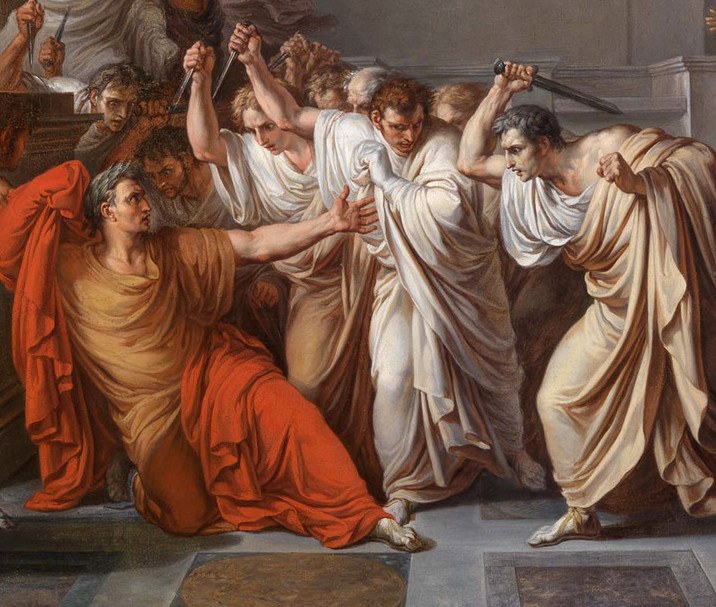Yves here. Even though the Trump Team is trying to preserve the appearance of having the upper hand in trade negotiations, losing on the first two cases decided so far on the Administration’s use of the International Economic Emergency Powers Act to justify his tariffs has dented momentum. And that’s a bigger deal than it might seem. First, as the article below notes, Trump is a negotiating one note Nellie, seemingly able only to make maximalist demands, including insisting on unnecessarily speedy and typically counterproductive timetable, only to suddenly reverse himself when met with serious opposition.
The Orange TACO. #Trump #TrumpIsUnfitForOffice #TACO #Resist pic.twitter.com/u8XOf7fzo7
— Triggered Tees Rebel (@WKazingmei) May 29, 2025
The footage below came from a deleted Saturday Night Live segment:
#TACOTrump Always Chickens Out @POTUS @realDonaldTrump
pic.twitter.com/xcy12AIs9P
— M-A.Stay’Legit™️🇨🇦 (@BagdMilkSoWhat) May 28, 2025
Trump also seems to have the odd notion that having hissies bolsters his manhood:
What’s this deal that China violated ?
No one knows because it doesn’t exist
I’m no fan of China and they totally steal our IP and much more.
However this rant is simply TACO TRUMP lashing out to heal his bruised ego as he is now the laughing stock of the planet 🤣 pic.twitter.com/2UDi0pcAnS
— Non-Hyphenated American (@NHAunleashed) May 30, 2025
Recall that Optor successfully used satire and stunts to erode the legitimacy of the Milosevic government. Perhaps the not-very-effective Democrat opposition should have deployed laughter rather than lawfare.
On the trade front, what China and Japan do next would be early indicators of the effect of the legal battles on the trade talks.
By Susan Stone, Credit Union SA Chair of Economics, University of South Australia. Originally published at The Conversation
Earlier this week, a US court blocked the so-called “Liberation Day” tariffs that US President Donald Trump imposed on imported goods from around 90 nations.
On Wednesday (US time), the Court of International Trade ruled the emergency authority Trump used to impose the tariffs could not override the role of Congress, which has the right to regulate commerce with other countries.
The following day, however, the US Court of Appeals for the Federal Circuit in Washington paused the trade court’s ruling, temporarily reinstating Trump’s tariffs. The earlier court ruling, and the fresh uncertainty prompted by the appeal have left the implementation of Trump’s trade policy in disarray.
Even though it has been paused, the trade court’s ruling calls into question trade negotiations underway with more than 18 different nations, which are trying to lower these tariffs. Do these countries continue to negotiate or do they wait for the judicial process to play out?
The Trump administration still has other mechanisms through which it can impose tariffs, but these have limits on the amount that can be imposed, or entail processes which can take months or years. This undermines Trump’s preferred method of negotiation: throwing out large threats and backing down once a concession is reached.
Emergency Powers Were a Step Too Far
The lawsuits were filed by US importers of foreign products and some US states, challenging Trump’s use of the International Emergency Economic Powers Act of 1977.
The lawsuits argued the national emergencies cited in imposing the tariffs – the trade deficit and the fentanyl crisis – were not an emergency and not directly addressed by the tariff remedy. The court agreed, and said by imposing tariffs Trump had overstepped his authority.
The ruling said the executive orders used were “declared to be invalid as contrary to law”.
The act states the president is entitled to take economic action in the face of “an unusual and extraordinary threat”. It’s mainly been used to impose sanctions on terrorist groups or freeze assets from Russia. There’s nothing in the act that refers to tariffs.
The decision means all the reciprocal tariffs – including the 10% tariffs on most countries, the 50% tariffs Trump was talking about putting on the EU, and some of the Chinese tariffs – are ruled by the court to be illegal.
The ruling was based on two separate lawsuits. One was brought by a group of small businesses that argued tariffs materially hurt their business. The other was brought by 12 individual states, arguing the tariffs would materially impact their ability to provide public goods.
Some Industry Tariffs Will Remain in Place
The ruling does not apply to tariffs applied under Section 201, known as safeguard tariffs. They are intended to protect industries from imports allegedly being sold in the US market at unfair prices or through unfair means. Tariffs on solar panels and washing machines were brought under this regulation.
Also excluded are Section 232 tariffs, which are applied for national security reasons. Those are the steel and aluminium tariffs, the automobile and auto parts tariffs. Trump has declared all those as national security issues, so those tariffs will remain.
Most of the tariffs against China are also excluded under Section 301. Those are put in place for unfair trade practices, such as intellectual property theft or forced technology transfer. They are meant to pressure countries to change their policies.
Other Trade investigations Are Still Underway
In addition, there are current investigations related to copper and the pharmaceuticals sector, which will continue. These investigations are part of a more traditional trade process and may lead to future tariffs, including on Australia.
Now for the Appeals
Following the subsequent reinstatement of tariffs, we now have to wait for the appeals process to play out. This may take some time. The plaintiffs have until June 5 to respond, and the Trump administration has until June 9.
In the meantime, there are at least five other legal challenges to tariffs pending in the courts.
If the appeals court provides a ruling the Trump administration or opponents don’t like, they can appeal to the Supreme Court.
Alternatively, the White House could direct customs officials to ignore the court and continue to collect tariffs.
The Trump administration has ignored court orders in the past, particularly on immigration rulings.
The administration is unlikely to lie down on this. In addition to its appeal process, officials complained about “unelected judges” and “judicial overreach” and may contest the whole process. The only thing that continues to be a certainty is that uncertainty will drive global markets for the foreseeable future.



























